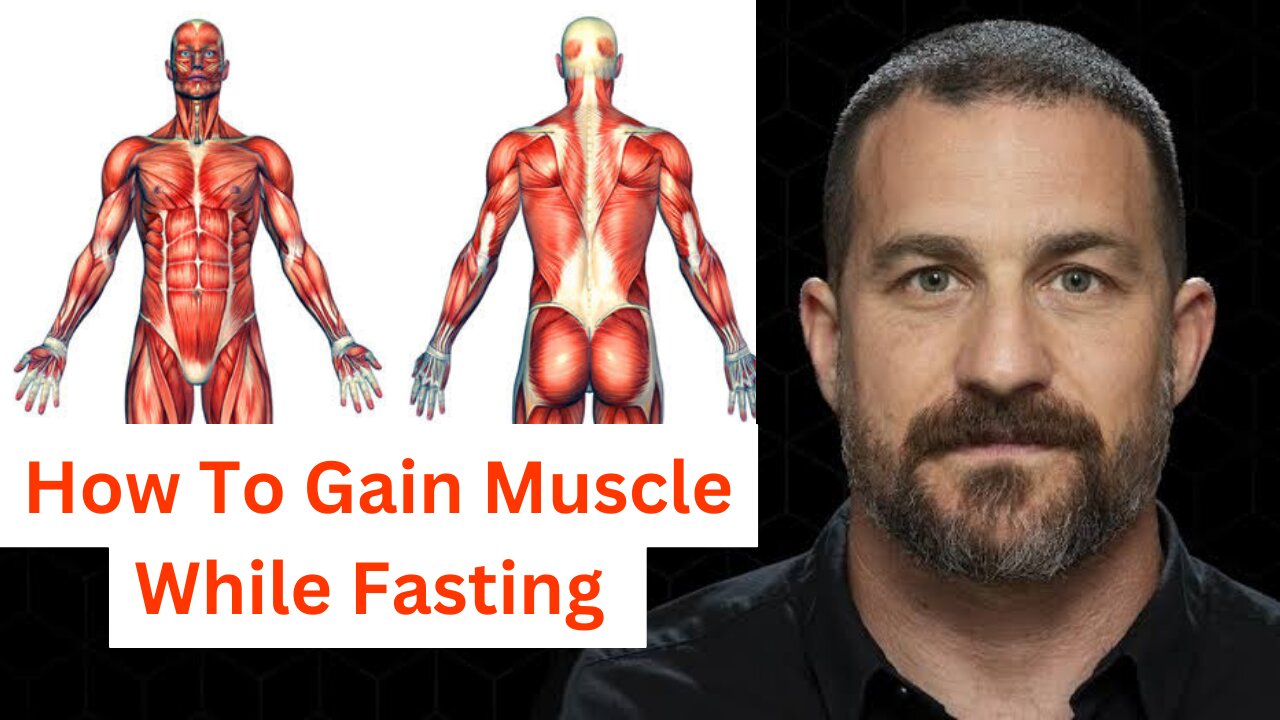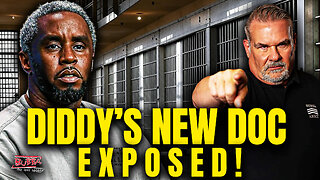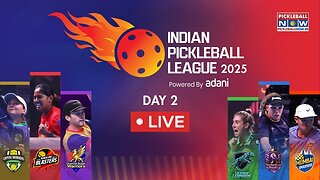Premium Only Content

Stanford Professor: Guide to Exercising and Gaining Muscle During Fasting | Andrew Huberman
#Gym #Musclegain #Exercise
In this informative video, Andrew Huberman, a distinguished Neuroscientist and esteemed professor at Stanford University, explores the scientific principles underlying muscle growth and physical training in conjunction with intermittent fasting. He imparts invaluable insights on the most effective time to engage in fasting and exercise, and underscores the manifold advantages of synergizing these two practices to attain superior outcomes.
Useful links:
Easiest way to lose weight:https://tinyurl.com/4wdnnxkk
Health and fitness Coaching:https://tinyurl.com/mura3v24
Structural Training for losing weight:https://tinyurl.com/yc4svhdf
Scenes used from Andrew Huberman's awesome channel Huberman lab:https://youtube.com/@hubermanlab
Our users are the backbone of our channel, and we may receive commissions when you use our affiliate link. However, we want to make it clear that this does not mean we endorse any specific product or company. It is essential to conduct your own research before making any purchasing decisions, as we always recommend.
Andrew Huberman is a renowned Stanford professor who specialises in neuroscience and is highly regarded for his expertise in the field of brain science and the founder of the widely followed Huberman Labs podcast. In addition to his research, he is also a well-known advocate for physical fitness and exercise. One of his notable contributions to the world of fitness is his insights on how to build muscle and exercise while fasting, which has gained a lot of attention from fitness enthusiasts worldwide. With his extensive knowledge and experience, Andrew Huberman is a leading authority on how to optimise the human body's performance and achieve optimal health through exercise and fasting.
In his discussion, Huberman delves into the benefits of fasting, highlighting its ability to enhance muscle development and recovery, while also promoting an elevated metabolic rate and increased fat oxidation. Furthermore, he shares valuable information on exercise strategies that are particularly effective during periods of fasting, such as high-intensity interval training and resistance training. By implementing these techniques at optimal times, Huberman advises on how to achieve the greatest gains in muscle mass.
During the course of the video also, Huberman presents in-depth insights into the mechanisms that drive muscle growth and the physiological transformations that take place as a consequence of fasting and exercise. Moreover, he furnishes valuable guidance on how to organise your diet and exercise schedule for achieving optimal outcomes.
If you're seeking to enhance your physique, shed excess weight, or enhance your overall well-being and physical fitness, watching this video is highly recommended. Andrew Huberman's wealth of knowledge and perspectives will provide you with an in-depth comprehension of the science behind muscle development and fasting, and empower you to design a practical and long-lasting workout regimen.
Keywords: Andrew Huberman, Neuroscientist, Stanford professor, Gain Muscle, Exercise, Fasting, best time to fast, Best time to exercise, Muscle growth, repair, Metabolic rate, Fat burning, High-intensity interval training, Resistance training, Diet, Health, Fitness, Sustainable exercise routine.
#AndrewHuberman #Gainmuscle #Fasting #Exercise #Metabolic #Musclegrowth #Gym #Fitness #Besttimetoexercise #Muscle
The video content presented here is solely intended for informational and educational purposes. The accuracy, applicability, fitness, or completeness of the video content is not guaranteed, and this channel makes no representations or warranties regarding it. Moreover, this channel does not guarantee the performance, effectiveness, or applicability of any websites mentioned or linked to in the video content. It is important to note that the video content is not intended to replace professional medical advice, diagnosis, or treatment, and it should not be relied upon as such. You should always consult with your physician or other qualified healthcare provider for any medical concerns or questions you may have.
-
 7:56
7:56
TheLifeGuide
2 years agoCan Money Buy Happiness: The Trusth | Andrew Huberman
609 -
 2:06:15
2:06:15
BEK TV
1 day agoTrent Loos in the Morning - 12/01/2025
12.6K1 -
 LIVE
LIVE
The Bubba Army
23 hours agoDIDDY'S NEW DOC EXPOSED! - Bubba the Love Sponge® Show | 12/02/25
1,307 watching -
 40:10
40:10
ZeeeMedia
15 hours agoFDA Memo: "Covid-19 Vaccines Have Killed American Children" | Daily Pulse Ep 153
22.8K35 -
 LIVE
LIVE
Pickleball Now
7 hours agoLive: IPBL 2025 Day 2 | High-Intensity Matchups Continue in the Indian Pickleball League
102 watching -
 15:11
15:11
itsSeanDaniel
1 day agoAngry Liberal Defends ILLEGALS, Then Gets CALLED OUT For It
54.8K29 -
 10:32
10:32
Actual Justice Warrior
2 days agoColorado School FORCES Girl Into Bed With Trans
28.1K28 -
 18:14
18:14
Nikko Ortiz
17 hours agoMost Painful Internet Clips...
79.5K12 -
 2:08:21
2:08:21
Side Scrollers Podcast
22 hours agoHasan Dog Joke Gets Streamer BANNED + Great Reset 100% CONFIRMED + More | Side Scrollers
64.8K15 -
 11:35
11:35
MetatronGaming
3 days agoYou Won't Believe Your Own Eyes..
25.9K1